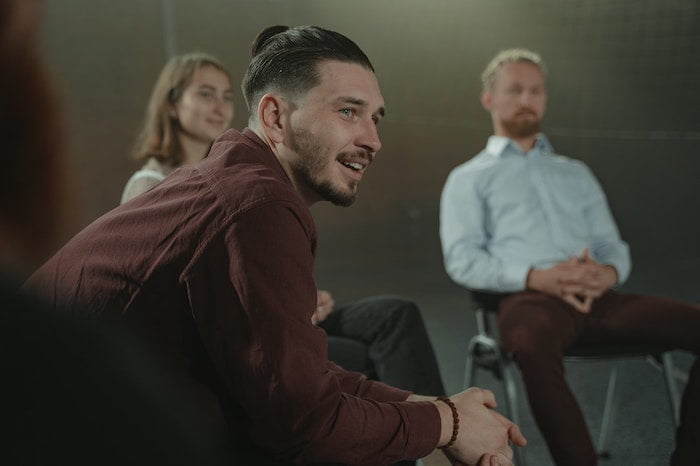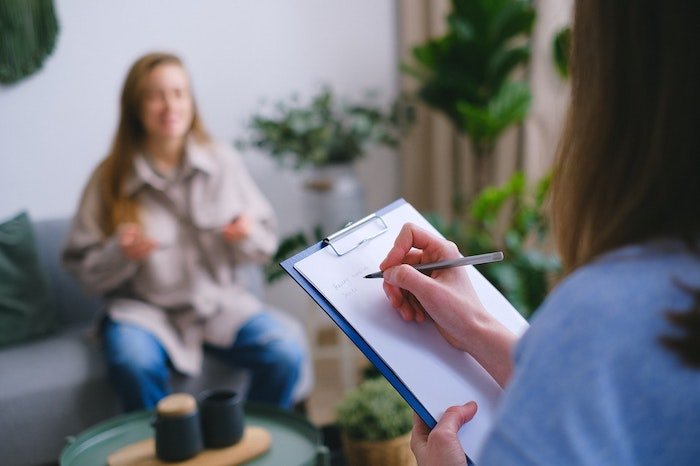Gambling Addiction Rehab
Quick Links for Gaming Addiction Rehab
- What type of addiction is gambling?
- How do I know if I’m addicted to gambling?
- Do I need to go to rehab for a gambling addiction?
- What happens during gambling addiction rehab?
- Can cryptocurrency trading develop into a gambling addiction?
- References for gambling addiction rehab
With the rise of online betting and addictive mobile apps, it’s never been easier to gamble.
This prevalence and ease may benefit some people, but according to a 2020 report, there are thought to be between 250,000 and 460,000 people in the UK who are now dealing with a gambling addiction.
This number looks set to rise in the future, with online gambling increasing by 24% in 2021. [1]
It’s important to remember that it is possible to recover from a gambling addiction, and you do not need to suffer in silence.
There are a number of rehabilitation centres and treatment programmes that specialise in treating this type of compulsive behaviour, and many people who were once in your shoes have gone on to live fulfilled and happy lives free from the compulsions and consequences of gambling.
What type of addiction is gambling?

Person researching gambling addiction rehab
While gambling does not involve substances such as drugs and alcohol, it is still classified as a potentially addictive activity.
Gambling is a form of behavioural addiction in which individuals compulsively repeat behaviours such as purchasing lottery tickets, spending money on online games and placing bets at casinos.
They may believe that there is a level of skill involved in gambling, rather than pure luck, and may attempt to recoup any lost money by continuing to repeat this behaviour.
If not treated, a gambling addiction can lead to strained relationships, financial troubles, mental health conditions such as anxiety and depression and even suicide.
Therefore, it is crucial to identify potentially detrimental behavioural patterns within yourself and your loved ones around gambling and take steps to recover from a gambling addiction as early as possible.
How do I know if I’m addicted to gambling?

Two women discussing gambling addiction rehab
You may enjoy betting on horses, visiting the casino or playing mobile games that encourage gambling. But when does a fun activity turn into an addiction?
There are two key signs that can reliably indicate the signs of addiction and dependence, both in substance and behavioural addiction.
If you have attempted to cut down on the frequency of gambling and/or the amount of money gambled but have been unable to do so, this may indicate that your mindset and behaviours around gambling are detrimental and potentially addictive.
A gambling addiction can also result in many negative lifestyle consequences, and your reaction to these consequences may be another indicator of addiction or dependence.
If you have experienced problems at school or work, a relationship breakdown, debt or any other negative consequences related to gambling but you continue to repeat this behaviour, you may have developed an addiction.
Do I need to go to rehab for a gambling addiction?

Two women discussing gambling addiction rehab
As a legal and socially acceptable activity, many people see gambling as a harmless and even fun behaviour with few consequences.
As a result, it can be difficult to recognise the signs of addiction in yourself, particularly when the majority of your acquaintances and social circle are also involved in the same activity.
However there are a number of signs that can indicate an addiction or dependency when it comes to gambling and these warning signals should be carefully monitored, as a seemingly harmless activity can quickly spiral into a devastating addiction.
If you can relate to some of the below statements, you may be dealing with a gambling addiction and should consider looking into rehab to help overcome this behaviour.
- I find myself increasing the frequency of gambling or the amount of money gambled in order to experience the same effects
- I have lied to friends, family members and therapists about the extent of my gambling
- I spend a lot of time thinking about gambling and the act of gambling itself
- I have started to neglect my responsibilities at work, home and school
- I have experienced negative consequences directly related to gambling but continue to do it
- I have attempted to reduce or completely stop gambling but have been unable to do so
- If I lose money while gambling, I will continue to gamble in an attempt to break even
- I have resorted to borrowing or even stealing in order to fund my gambling addiction
- If I am unable to gamble, I feel agitated and restless
- Gambling helps me to escape from the worries and pressures of life
- Other people have expressed concern about my gambling
- I feel ashamed and guilty at the effect that my gambling has had on my life and the life of others
- I can’t imagine my life without gambling
What happens during gambling addiction rehab?

Support group in progress at a gambling addiction rehab
Identifying and treating compulsive gambling can be difficult, as many people are reluctant to acknowledge that they have a gambling addiction.
In these instances, a large part of treatment involves guiding the individual towards the knowledge that their behaviour around gambling is detrimental and needs to be changed.
For this reason, it is recommended that anyone dealing with gambling addiction should recover within a specialised rehabilitation centre and follow a personalised treatment plan (whether inpatient treatment or outpatient treatment) in order to reduce the chances of relapse and promote long-lasting behavioural changes.
Once the individual has accepted that they have a gambling addiction, treatment can rapidly progress with counselling, local support groups and certain forms of medication utilised within an effective treatment programme.
1. Assessment
It is common for a treatment programme to begin with a psychological assessment, during which a medical professional will examine you and ask a number of questions relating to your behaviour and mindset around gambling.
They may also speak with your friends and family, but will usually require your permission and consent to do so.
A physical examination will usually take place during the initial assessment, and your personal medical history will also be reviewed in order to rule out any underlying conditions or potential medication reactions.
In order to correctly diagnose a gambling addiction, a medical professional may use the Diagnostic and Statistical Manual of Mental Disorders (DSM-5) [2] to check that you sufficiently meet the criteria, even if you don’t believe that you have an addiction.
2. Counselling
Simply stopping the act of gambling while in a treatment centre will not necessarily treat the addiction, as there are a number of deep-rooted mindsets and beliefs that contribute to this behaviour.
Once the individual emerges from treatment, they will likely fall back into compulsive gambling if the cause is not addressed.
There are a number of therapy methods that can be utilised within gambling addiction recovery, including one-to-one therapy, group therapy and various forms of behavioural therapy.
Cognitive behavioural therapy in particular is an effective treatment that challenges beliefs and mindsets related to addiction and provides coping strategies for dealing with triggers.
Other behavioural therapies focus on exposing the individual to addictive behaviour, identifying the thoughts and urges that arise and teaching healthy coping skills. [3]

Therapist taking notes whilst speaking with a patient during gambling addiction rehab
3. Medication
It is thought that the brain activity in compulsive gamblers is similar to that of an individual dealing with a substance addiction.
Therefore, certain medications have been approved for use in treating gambling addiction that were previously only used for substance abuse disorders.
Naltrexone has been proven to be effective at treating gambling addiction and is now offered as an NHS treatment for this disorder.
One study showed that 60% of problem gamblers were able to stop gambling while using this medication, with another 20% significantly reducing their gambling activity. [4]
Other medications such as antidepressants and opioid antagonists are also thought to be effective at treating gambling addiction. Individuals may be prescribed specific medications as part of their treatment programme or should consult with a medical professional once the treatment has ended.
4. Aftercare
The care and support received after the treatment programme ends is arguably the most crucial aspect of recovery.
The chances of relapse are higher once the individual leaves treatment, as they resume their normal lives and utilise the skills learned through therapy to avoid detrimental behavioural patterns.
A reputable treatment programme or rehabilitation centre will provide an aftercare plan which may include ongoing counselling, continued use of medication and regular attendance at local support groups such as Gamblers Anonymous (GA). [5]
Individuals are also encouraged to build a strong support network through their friends and family in order to increase the chances of long-term recovery.
Can cryptocurrency trading develop into a gambling addiction?

Patient and support worker at home talking about cryptocurrency and gambling addiction rehab
The cryptocurrency market is extremely volatile, with the ability to gain or lose value at a rapid rate within hours.
As a result, many people have started to develop compulsive behaviours around this activity that can be compared to gambling addiction.
While many gambling institutions are fairly well-regulated, cryptocurrency trading is available at all hours and in many cases can put individuals at risk of losing extremely large amounts of money.
Buoyed by the excitement and endless promotion on social media, a number of people have placed their entire life savings into cryptocurrency and rely on a high return in order to fund their future retirement, while others spend hours on the computer monitoring various stocks, compulsively buying and selling in an attempt to make money.
These behaviours can be equally as detrimental as traditional gambling, and there are now a number of rehabilitation centres offering treatment programmes that specialise in cryptocurrency addiction.
To get the professional help of a gambling addiction rehab – whether for yourself or one of your loved ones – give our expert team a call for free today on 0800 326 5559
References for Gambling Addiction Rehab
[1] https://publications.parliament.uk/pa/ld5801/ldselect/ldgamb/79/7908.htm
[2] https://www.ncbi.nlm.nih.gov/books/NBK519704/table/ch3.t39/
[3] https://www.ncbi.nlm.nih.gov/books/NBK230629/
[4] https://www.ncbi.nlm.nih.gov/pmc/articles/PMC6426388/
[5] https://www.gamblersanonymous.org.uk/






